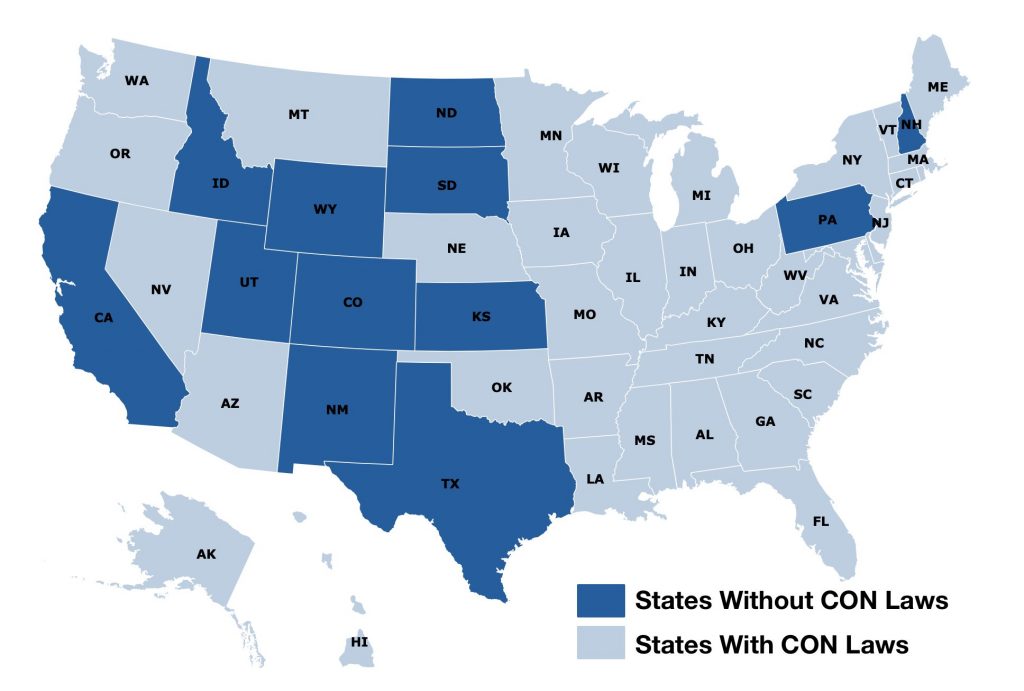Eliminate certificate of need laws
A certificate of need (CON) is a government-mandated permission slip to start a new business or offer new services—in this case, in the healthcare industry. Getting permission is both time consuming and expensive. Worse, the government typically denies permission if existing medical providers object to the new competition. This creates artificial, unnecessary, and dangerous limits on medical care.

Roughly 60% of the U.S. population lives in a jurisdiction with CON laws. Patients there suffer from higher costs, decreased quality of services and fewer options for treatment. Per capita, these patients have access to fewer hospitals, hospital beds, surgery centers and hospice facilities. The only ones that benefit from CON laws are incumbent healthcare providers who never have to worry about increased competition. These providers fight to keep CON laws on the books.
The pandemic, however, has exposed the dangers of restricting the supply of healthcare facilities. Twenty-five jurisdictions rightly recognized that CON laws prevented healthcare providers from responding properly to the pandemic. Those jurisdictions temporarily suspended their CON requirements or processed emergency CON applications.
Temporary actions are not enough. States with CON laws should eliminate these laws. In fact, a dozen states have already successfully eliminated their CON laws. Alternatively, lawmakers could:
- Make all temporary CON suspensions permanent.
- Repeal all moratoria or allow them to expire.
- Sunset CON laws, as Florida did in 2019. Sunsetting laws gives providers time to adjust to a new landscape.
- Repeal some CON requirements without repealing the entire program. Repeals should prioritize CONs that apply to low-cost beds, equipment, and services.
- Raise expenditure minimums across all CON categories, as Alaska has done. This would mean CONs are never required unless an applicant proposes a high capital expenditure, such as $10 million or $20 million.
- Reduce CON application burdens by lowering costs, prohibiting competitors from objecting to applications, and requiring agencies to decide pending CON applications within 30 days.
IJ has done extensive research on CON laws and can help identify opportunities in your state for reform.

Conning the Competition
Read more about CONs in IJ’s latest report, Conning the Competition: A Nationwide Survey of Certificate of Need Laws.
Get Started Today.
Please fill out this form and an IJ staff member will reach out to you shortly.

